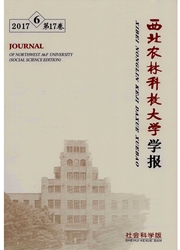

 中文摘要:
中文摘要:
社会关系、职业认同、城镇生活适应性都是影响新疆维族农民工外出务工的重要因素。研究通过对城镇维族务工人员的调查,获得了605份有效问卷。运用Logistic模型回归分析发现:维族青壮年劳动力主要通过政府组织外出务工,对外出务工职业认同感比较强。但饮食习惯、汉语交流的困难严重阻碍他们长期务工。清真生活困难,降低了城镇适应性;汉语交流困难,导致务工技能提升困难。因而拓宽亲情网络渠道,增强职业认同感,提高汉语交流水平,主动融入城镇生活,是稳步推进维族农民工进城就业的重要内容。
 英文摘要:
英文摘要:
Social relations, occupation identity and adaptation to city life are important factors to affect rural ethnic migrant workers' intention to work in urban areas. Through survey of rural young Uygur migrant workers, 605 valid questionnaires are collected. Logistic regression analysis shows that rural young Uygur migrant workers leaving home to work in cities are mainly organized by the government and they usually show occupation identity in their job, while their special eating habits and difficulties in using Chinese to commutate with other people block them to work in cities for long time. The inconvenience caused by their eating habits decreases their adaptation to city life, and the difficulty in commutation with other people resulting from their deficiency in Chinese language hinders the improvement of their working skills. Therefore, expanding family network channels, enhancing occupation identity, improving Chinese language skills to commutate with other people, taking an initiative to integrate them into the urban life are important tasks to be taken in order to steadily enhance ethnic migrant workers' employment in urban areas.
 同期刊论文项目
同期刊论文项目
 同项目期刊论文
同项目期刊论文
 期刊信息
期刊信息
